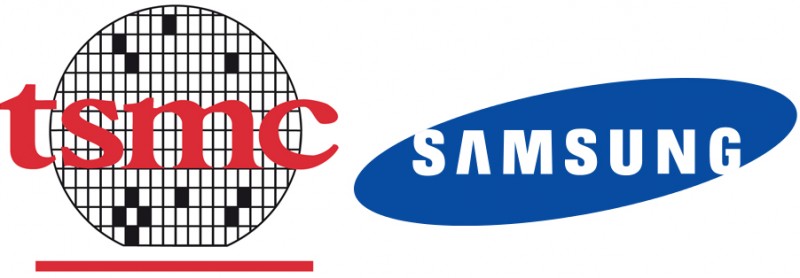News reports and rumors have gone back and forth multiple times over whether Samsung or the Taiwan Semiconductor Manufacturing Company (TSMC) will produce the A9 chips designed for use in next-generation iOS devices as the two companies compete for Apple's business.
In December, a report suggested Samsung had already begun production on the A9 chips, but a new analyst prediction shared by the Taipei Times suggests that TSMC, not Samsung, may be Apple's main A9 chip supplier due to its more favorable production yield.

While one company will win the right to produce the bulk of Apple's next-generation chips, Apple may spread orders of the A9 processor across multiple suppliers in order to cut down on risk. The best yield results in the lowest price for Apple, so the company that manages to produce the most usable chips from a single wafer (a semiconductor material) will likely win the bulk of orders from Apple.
The continually shifting Samsung vs. TSMC rumors reflect the ongoing competition between the two chip manufacturing companies and demonstrate just how important Apple contracts are to suppliers. As we saw with GT Advanced and its unfavorable sapphire deal with the Cupertino company, manufacturers will go to great lengths to secure lucrative partnerships with Apple.
In 2013, Apple signed a multi-year deal with TSMC to produce A-series processors for Apple devices as the company made an effort to move away from Samsung, but while TSMC produced the bulk of Apple's A8 and A8X chips for the iPhone 6 and the iPad Air 2, Apple has not been able to entirely cut ties with Samsung due to its chip production expertise and reliability.
As chip technology advances, it becomes more and more difficult for companies like Samsung, TSMC, Intel, and others to pack transistors onto an ever-decreasing surface area, which is why Apple has likely made moves to diversify its supply chain lineup in recent years. More suppliers gives the company a backup solution should one run into production difficulties that could result in potential delays.






from MacRumors: Mac News and Rumors - All Stories
In December, a report suggested Samsung had already begun production on the A9 chips, but a new analyst prediction shared by the Taipei Times suggests that TSMC, not Samsung, may be Apple's main A9 chip supplier due to its more favorable production yield.

"The two companies' technological capabilities are similar, so the key factor will be whose mass-production yield is better," MIC director Chris Hung (洪春暉) told reporters on the sidelines of the event. Hung added that the chances of TSMC remaining the main supplier are higher because of its better yields.
While one company will win the right to produce the bulk of Apple's next-generation chips, Apple may spread orders of the A9 processor across multiple suppliers in order to cut down on risk. The best yield results in the lowest price for Apple, so the company that manages to produce the most usable chips from a single wafer (a semiconductor material) will likely win the bulk of orders from Apple.
The continually shifting Samsung vs. TSMC rumors reflect the ongoing competition between the two chip manufacturing companies and demonstrate just how important Apple contracts are to suppliers. As we saw with GT Advanced and its unfavorable sapphire deal with the Cupertino company, manufacturers will go to great lengths to secure lucrative partnerships with Apple.
In 2013, Apple signed a multi-year deal with TSMC to produce A-series processors for Apple devices as the company made an effort to move away from Samsung, but while TSMC produced the bulk of Apple's A8 and A8X chips for the iPhone 6 and the iPad Air 2, Apple has not been able to entirely cut ties with Samsung due to its chip production expertise and reliability.
As chip technology advances, it becomes more and more difficult for companies like Samsung, TSMC, Intel, and others to pack transistors onto an ever-decreasing surface area, which is why Apple has likely made moves to diversify its supply chain lineup in recent years. More suppliers gives the company a backup solution should one run into production difficulties that could result in potential delays.
from MacRumors: Mac News and Rumors - All Stories
0 件のコメント:
コメントを投稿